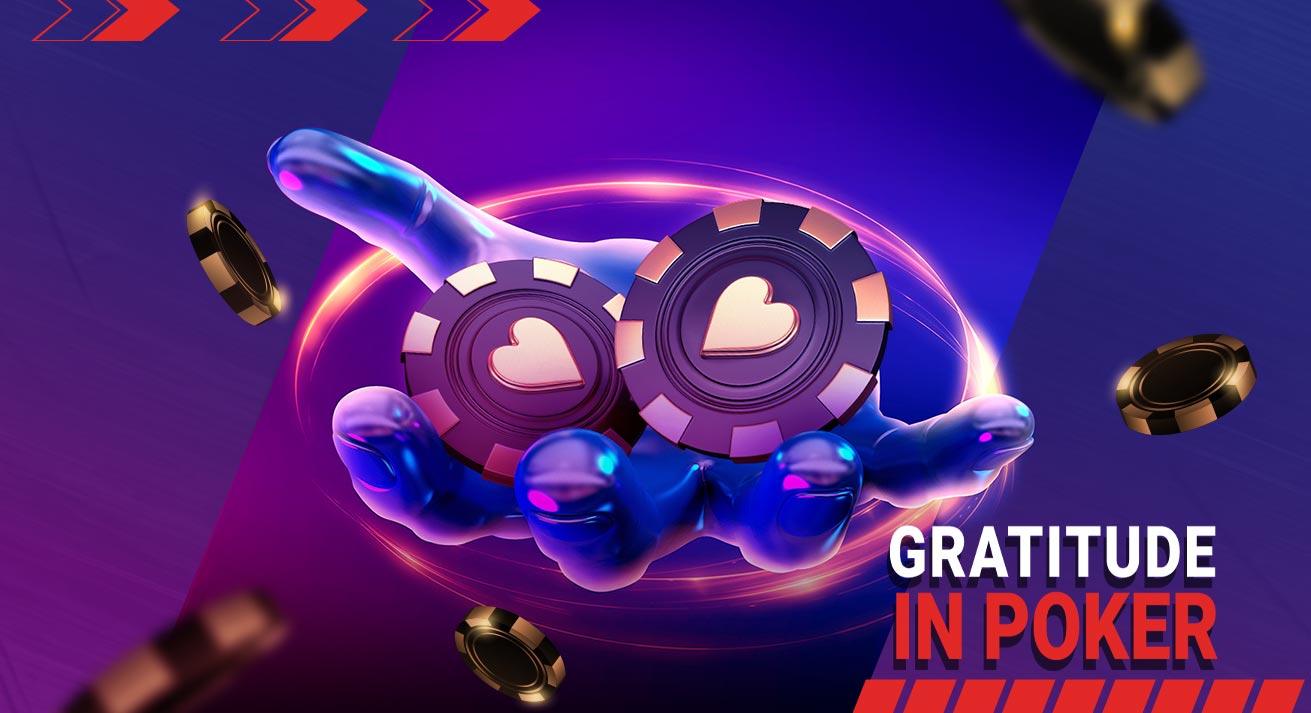With Thanksgiving season at hand, it's a time for reflection and appreciation. At Everygame Heat Poker, we celebrate not only the thrill of of the game of poker but also the values that enhance our experience at the table: gratitude and sportsmanship. These principles are integral to a positive atmosphere in poker, turning a competitive game into a shared journey of friendship and respect.
Let’s explore how these values manifest in poker, enriching our interactions and making every hand played a little more meaningful.
The Fun of Poker
Poker is often seen as a high-stakes game where fortunes can change with a single card. However, at its core, poker is about having fun. The laughter shared over a bad beat or the thrill of a well-played bluff creates an environment where players can bond over their experiences. This enjoyment is increased when players approach the game with gratitude—thankful for the opportunity to play, for the company of fellow players, and for the lessons learned no matter the outcome.
Gratitude in poker encourages players to appreciate not just their own successes but also those of their opponents. When you acknowledge the skill of others, it gives a sense of community rather than competition. This mindset can transform the game from a contest into an enjoyable social event.
The Life Skills Gained Through Poker
Playing poker is more than just dealing cards; it teaches valuable life skills that extend beyond the table. Skills such as patience, strategic thinking, and emotional control are cultivated through gameplay. In addition, in practicing gratitude, these skills are improved further. Recognizing moments of learning, whether from a loss or an unexpected win, can lead to personal growth.
For instance, handling losses gracefully is a crucial aspect of both poker and life. When you express gratitude for the lessons that come from defeat, you develop resilience and humility. These traits not only improve your game but also enrich your personal lives through a positive outlook and encouraging self-help.
Relationships and Friendships Made Through Poker
One of the most beautiful aspects of poker is its ability to bring people together. Whether it's a casual home game or a competitive tournament, poker creates connections among players from diverse backgrounds. Gratitude plays a significant role in nurturing these relationships.
When players express appreciation for each other's company and skills, it strengthens bonds and fosters friendships that can last long after the cards are put away. Sharing stories about memorable hands or discussing strategies can lead to deeper conversations that transcend the game itself. In this way, poker becomes not just about winning chips but about building lasting relationships grounded in mutual respect and enjoyment.
Poker Etiquette and Sportsmanship
At its heart, sportsmanship in poker is about respect—respect for the game, respect for fellow players, and respect for yourself. Good sportsmanship is shown through proper poker etiquette. These behaviors create an environment where everyone feels valued.
Practicing gratitude enhances sportsmanship. Simple gestures like wishing opponents good luck or thanking them after a hand can set a positive tone at the table. Celebrating victories with humility—acknowledging that luck plays a part—fosters goodwill among players. Conversely, handling losses without blame or anger demonstrates maturity and reinforces the idea that poker is ultimately about enjoying the experience together.
Key Etiquette Tips for Sportsmanship
Respect the Turn Order
Always wait for your turn to act. Pay attention to the action and follow the lead of others at the table.
Maintain a Positive Attitude
Keep a positive attitude, regardless of whether you win or lose.
Handle Wins and Losses Gracefully
Celebrate victories with humility and accept losses without resentment.
Be Mindful of Your Language
Avoid discussing hands that are still in play or revealing information about your cards prematurely.
Show Appreciation for the Dealer
Dealers play a vital role in the game. It's important to treat them with respect.
Encourage New Players
Help newcomers to understand the rules and strategies of poker. Offering guidance rather than criticism.
Practice Good Betting Etiquette
Clearly announce your bet amount before placing your chips in front of you. Place your chips neatly into the pot so everyone can see how much has been bet.
Keep Distractions Away
Minimize distractions such as phones or side conversations. Show respect for other players' time and keep engaged in the game.
Be Honest and Transparent
In poker, always be truthful about your actions and chip counts. Avoid behavior that could be seen as cheating or collusion, as this undermines trust among players.
Promote a Supportive Environment
Celebrate not just your successes but also those of others at the table. Compliment good play or clever strategies.
By implementing these practices at the poker table, players can contribute to an environment of respect, integrity, and enjoyment; the key components of good sportsmanship in poker. Ultimately, these actions not only improve individual experiences but also strengthen community ties.
At the End of the Day, It’s a Game!
As we gather around tables at Thanksgiving, whether at home or online, it’s important to support gratitude and sportsmanship in our poker games. These values not only increase our enjoyment but also foster connections that enrich our lives way beyond the felt.
Take these moments to appreciate each hand dealt, every opponent faced, and the friendships formed along the way.
Let’s raise our glasses (or chips) in gratitude to poker! May we continue to celebrate not just our wins but also our shared experiences at the table. Join us at Everygame Heat and play with heart and sportsmanship!

